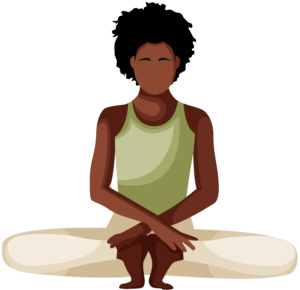Cowherd (Gorakshasana)
Pose Overview
| Common Name | Cowherd |
| Traditional Sanskrit Name | Gorakshasana |
| Sanskrit Name Pronunciation | go-rahk-HA-suh-nuh |
| Pose Difficulty | Intermediate |
| Drishti
Drishti is the gaze or visual focus point during yoga poses.
Learn more about Drishti |
Straight ahead or the nose |
Cowherd, or Gorakshasana in Sanskrit, is a yoga pose that is said to be beneficial for stretching out the shoulders, hips, and upper back. The name of the pose comes from the fact that it resembles the pose of a cowherd, with one arm behind the back and the other arm extended upward. The pose is said to be helpful for increasing flexibility and strength in the shoulders, hips, and upper back, and for promoting a sense of balance and focus. It is also said to be beneficial for relieving stress and anxiety, and for promoting a sense of inner peace.
Benefits of Cowherd
Strengthens the core and improves balance, stretches the shoulders and hips, improves posture, and increases flexibility.
How to Enter Cowherd
Begin in a seated position with both legs extended in front of you. Bend the right knee and bring the heel towards the left hip. Cross the left ankle over the right knee. Bend the left knee and bring the heel towards the right hip. Keep the left knee pointing up towards the ceiling. Sit up tall and extend both arms out to the side, parallel to the floor. Bring the left arm behind the back and the right arm in front of the back. Bring the left elbow to the right elbow, or interlock the fingers.
How to Exit Cowherd
Release the arms, straighten the legs, and return to a seated position.
Common Cowherd Modifications & Variations
If it is difficult to interlock the fingers, use a strap or towel to bind the hands together. To deepen the stretch in the shoulders, try bringing the hands behind the back and interlocking the fingers behind the back.
Common Mistakes with Cowherd
Rounding the back or slouching forward, not sitting up tall, not crossing the ankles correctly
Safety Guidance
Avoid this pose if you have any knee or shoulder injuries, or if you have high blood pressure.

